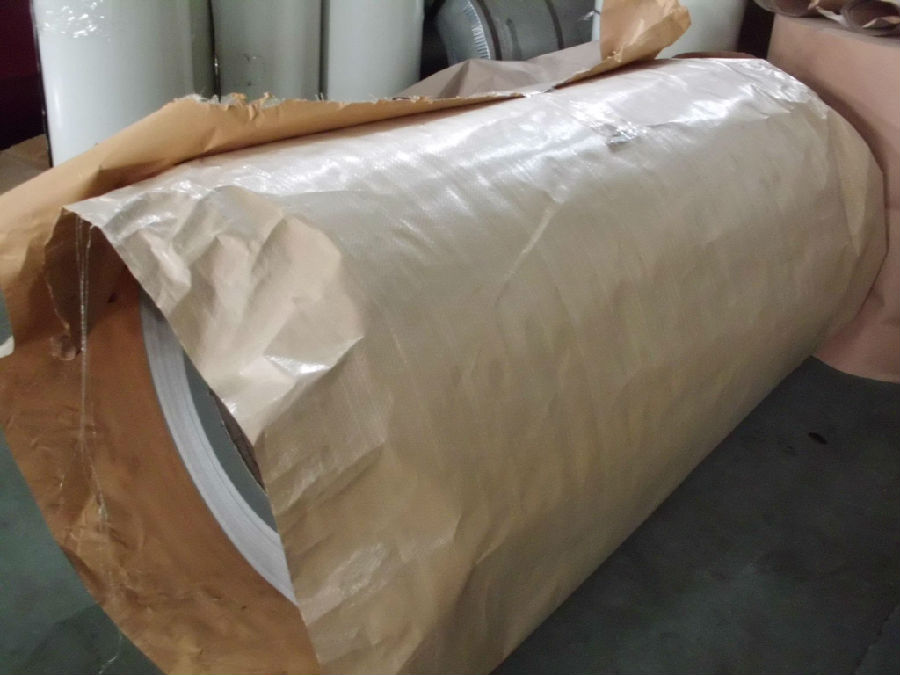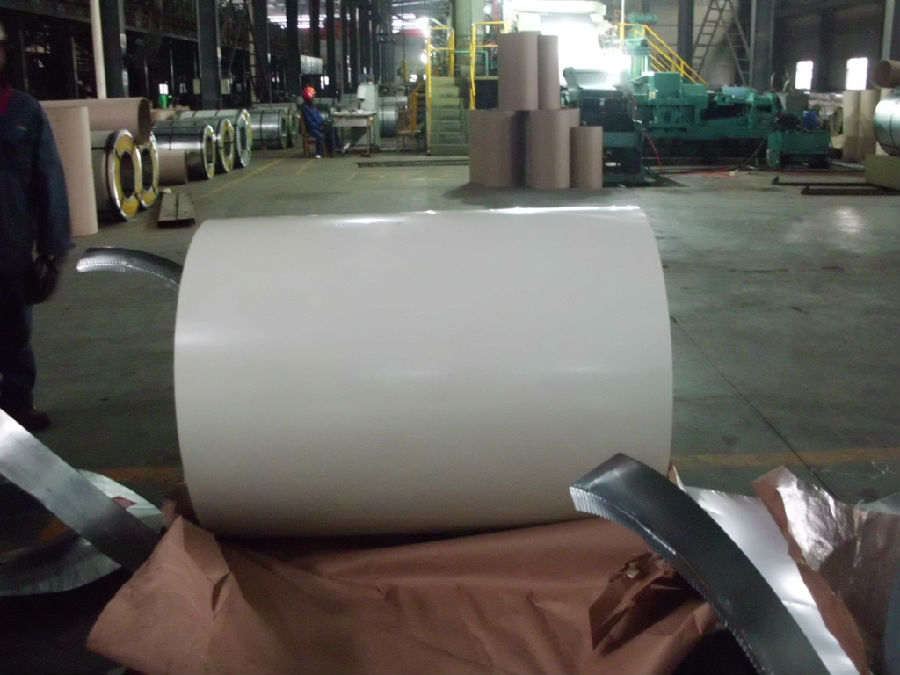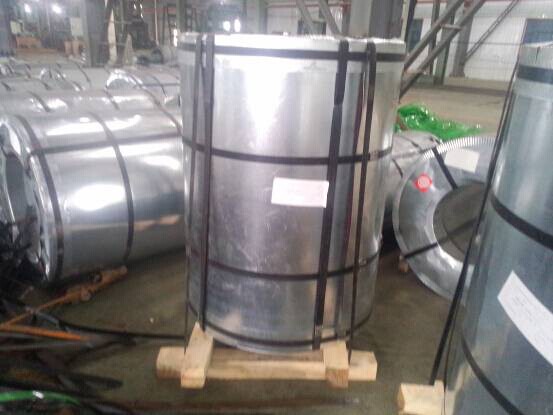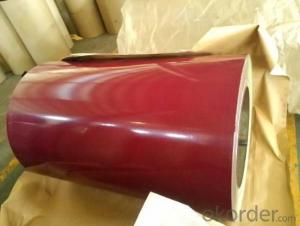Pre-painted Galvanized Steel Coils-RAL2011-0.4mm*1250mm
- Loading Port:
- Shanghai
- Payment Terms:
- TT OR LC
- Min Order Qty:
- 50 m.t.
- Supply Capability:
- 25000 m.t./month
OKorder Service Pledge
OKorder Financial Service
You Might Also Like
I Specifications:
1.Thickness:0.16-2.0mm
2.Width:600-1500mm
3.Material: SGCC,SGCD,SECC,SECD,DX51D+Z
4.Zinc coating:40-275G/M2
5.Surface Structure: galvanized ,zero spangle, regular spangle or normal spangle
6.Surface treatment: chromated and oiled, chromated and non-oiled
7.Color:all RAL series

II Main characteristics :
1.strong corrosion resistance
2.surface quality
3.conducive to deep processing,such as the embossed PPGI,printed PPGI&punching PPGI
4.economy and practicality

III Applications:
Household Appliance:
1.Refrigerator shutter &side panels, Washer, Freezers, Air conditions,
2.Rice Cooker, Microwave Ovens, Water Heaters, Sterilization Cabinets, Range Hoods
3.Computer Panels , DVD/DVB panels, TV back panel etc.

- Q:Are steel coils used in construction?
- Yes, steel coils are commonly used in construction. They are used for various applications such as structural framing, roofing, walls, and other components in buildings and infrastructure projects. Steel coils provide strength, durability, and flexibility, making them a popular choice in construction.
- Q:Can steel coils be coated with nickel?
- Yes, steel coils can be coated with nickel.
- Q:What is the average width tolerance for steel coils?
- The average width tolerance for steel coils can vary depending on the specific industry and application, but typically it ranges from ±0.005 to ±0.25 inches.
- Q:Can steel coils be used in electrical applications?
- Certainly, electrical applications can make use of steel coils. In the realm of electrical circuits, steel coils often serve as magnetic cores in transformers and inductors, which are indispensable components. The steel employed in these coils typically consists of high-quality electrical steel, possessing distinct magnetic attributes, including low core losses and high permeability. These attributes empower the steel coils to efficiently transmit electrical energy between various circuit components. Furthermore, steel coils can also find utility in other electrical applications, such as the construction of electric motors and generators. Taking everything into account, steel coils are extensively employed in electrical applications due to their magnetic properties and their capacity to handle high currents and temperatures.
- Q:I need to know a name of any site which provides information on Steel structures??
- What information are you looking for specifically? information on steel structures could refer to lots of things. Try the American Institute of Steel Construction, or the American Society of Civil Engineers. Google to find them.
- Q:How do steel coils contribute to the marine vessel construction industry?
- The marine vessel construction industry heavily relies on steel coils as vital components. These coils, typically made of high-quality steel, are crucial for fabricating various structural elements of ships and boats. They are utilized in multiple ways to contribute to the construction and functionality of marine vessels. To begin with, steel coils are essential for constructing the hull, which serves as the main body of the ship. Given the harsh conditions at sea, such as waves, corrosion, and impacts, the hull requires strong and durable materials. Steel coils provide the necessary strength and integrity to ensure the structural stability and safety of the vessel. Furthermore, steel coils are utilized in fabricating decks, bulkheads, and other internal structures of marine vessels. These components are vital for dividing the ship into compartments, providing stability, and supporting various equipment and machinery. Steel coils, known for their excellent tensile strength, can bear heavy loads and resist deformation, making them ideal for constructing these crucial elements. In addition, steel coils are employed in the construction of propulsion systems and other mechanical parts of marine vessels. These coils are often shaped and formed into specific components, such as shafts, gears, and propellers, which are essential for the vessel's propulsion and maneuverability. The high strength and durability of steel coils ensure the reliability and efficiency of these mechanical systems, enabling smooth navigation and operation of the vessel. Moreover, steel coils contribute to the marine vessel construction industry by enhancing safety and longevity. Steel is highly resistant to corrosion, a major concern in marine environments due to saltwater exposure. By utilizing steel coils, marine vessels can withstand the corrosive effects of seawater, reducing the need for frequent maintenance and repair. This, in turn, improves the vessel's lifespan and minimizes the risk of accidents or failures at sea. In conclusion, steel coils are indispensable in the marine vessel construction industry. They provide the necessary strength, durability, and resistance to corrosion, ensuring the safety, performance, and longevity of ships and boats. Whether it is the construction of the hull, fabrication of internal structures, or creation of mechanical components, steel coils play a vital role in every aspect of marine vessel construction.
- Q:What is the standard length of steel coils?
- The standard length of steel coils can vary depending on the specific industry and application. However, a common standard length for steel coils is typically around 30 feet or 9.1 meters.
- Q:How are steel coils inspected for quality control?
- Steel coils are inspected for quality control through a series of rigorous tests and inspections. This typically involves visual checks for any surface defects, such as scratches or dents, as well as measurements of dimensions, weight, and thickness. Additionally, non-destructive testing techniques like ultrasonic or magnetic particle testing may be conducted to detect internal flaws or inconsistencies in the steel. These comprehensive inspections ensure that only high-quality steel coils are approved for use.
- Q:What are the common coil lengths available for steel coils?
- The steel coil lengths offered in the industry and specific requirements are subject to variation. Nonetheless, several standard coil lengths are extensively employed in different applications. These encompass coil lengths of 100 feet (30.48 meters), 200 feet (60.96 meters), 300 feet (91.44 meters), and 500 feet (152.4 meters). These lengths find extensive use in construction, manufacturing, and automotive sectors, where steel coils serve diverse purposes. It is worth mentioning that coil lengths can also be tailored to meet specific project requirements or customer preferences.
- Q:Can someone help me...i have a diagram and were supposed to calculate the steel tonnage needed for the pictre. Can someone tell me step by step what i need to do (ex:find area of ...)
- Find the volume of steel and then multiply that by the density of the steel.
1. Manufacturer Overview |
|
|---|---|
| Location | |
| Year Established | |
| Annual Output Value | |
| Main Markets | |
| Company Certifications | |
2. Manufacturer Certificates |
|
|---|---|
| a) Certification Name | |
| Range | |
| Reference | |
| Validity Period | |
3. Manufacturer Capability |
|
|---|---|
| a)Trade Capacity | |
| Nearest Port | |
| Export Percentage | |
| No.of Employees in Trade Department | |
| Language Spoken: | |
| b)Factory Information | |
| Factory Size: | |
| No. of Production Lines | |
| Contract Manufacturing | |
| Product Price Range | |
Send your message to us
Pre-painted Galvanized Steel Coils-RAL2011-0.4mm*1250mm
- Loading Port:
- Shanghai
- Payment Terms:
- TT OR LC
- Min Order Qty:
- 50 m.t.
- Supply Capability:
- 25000 m.t./month
OKorder Service Pledge
OKorder Financial Service
Similar products
New products
Hot products
Related keywords





























